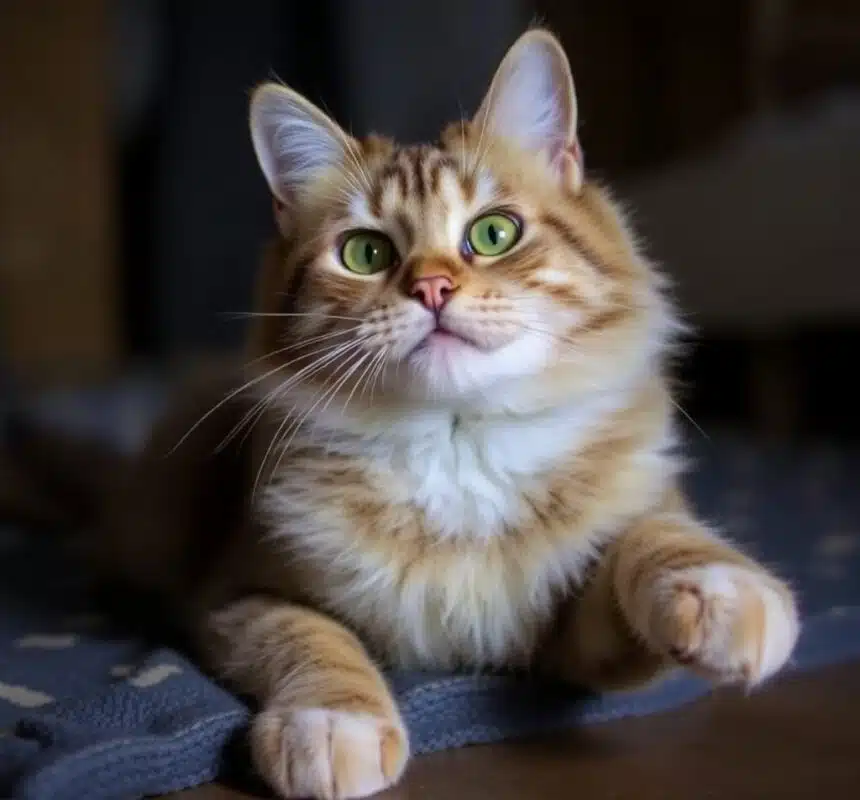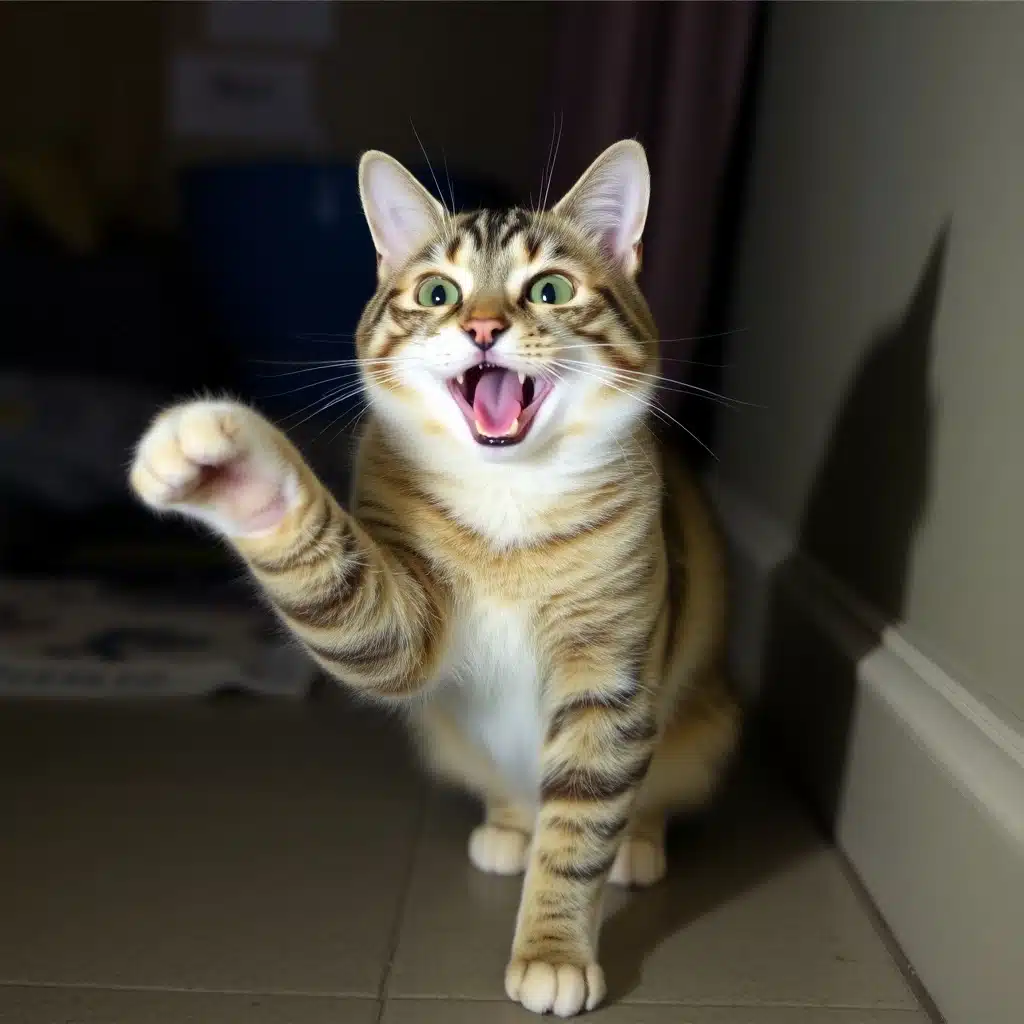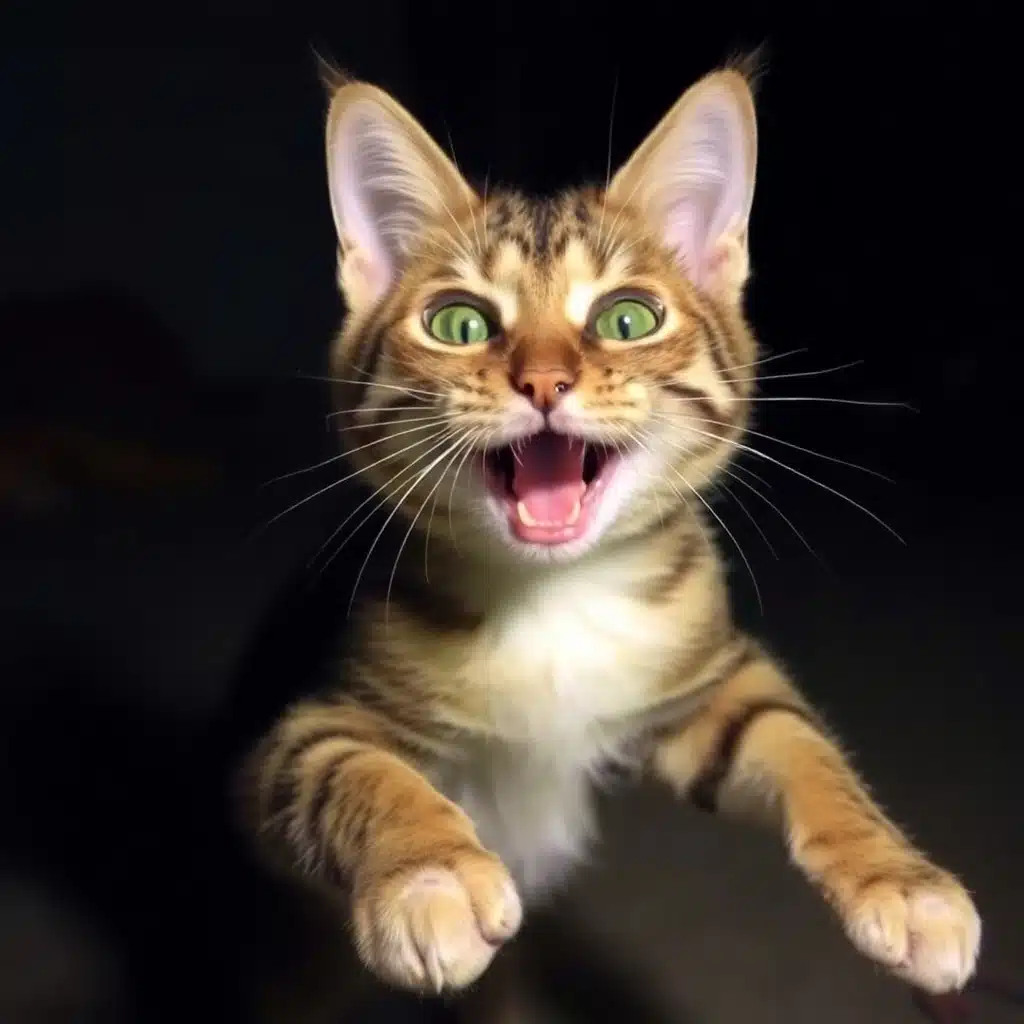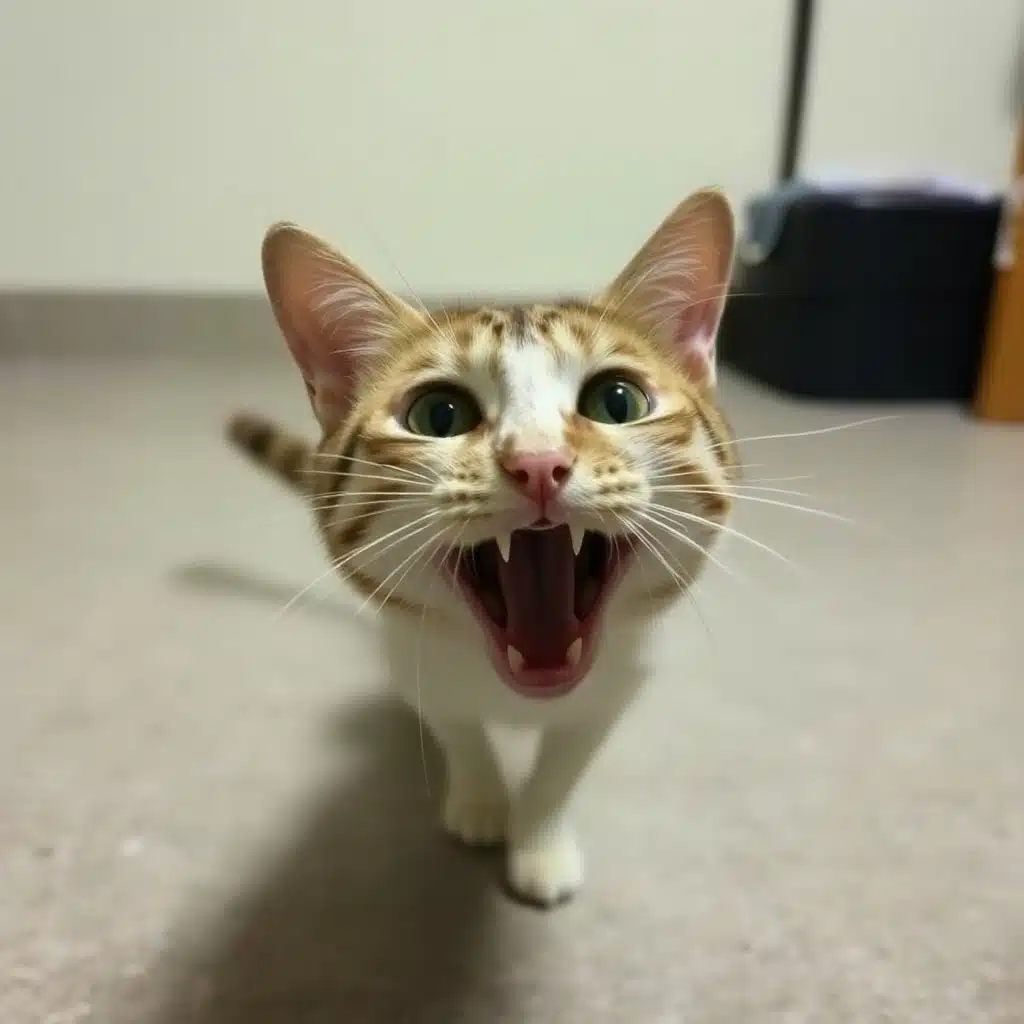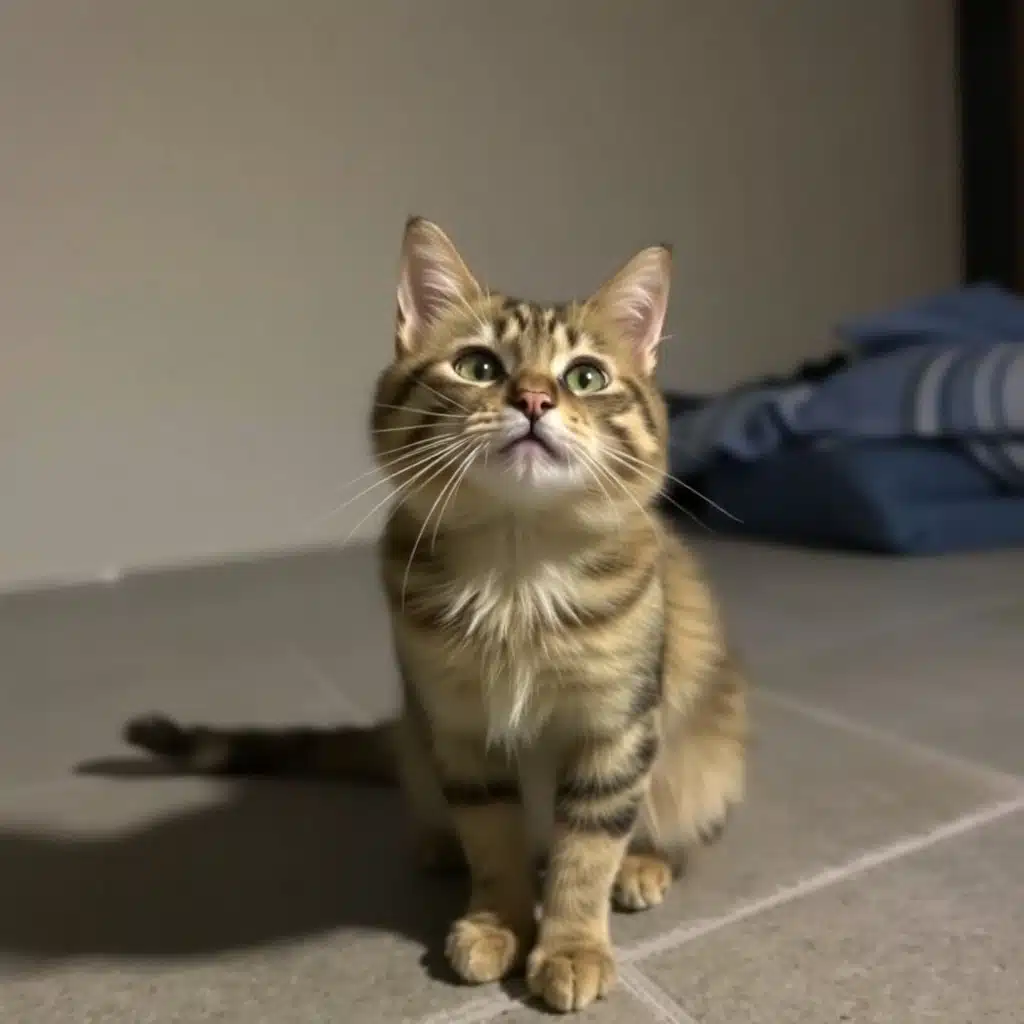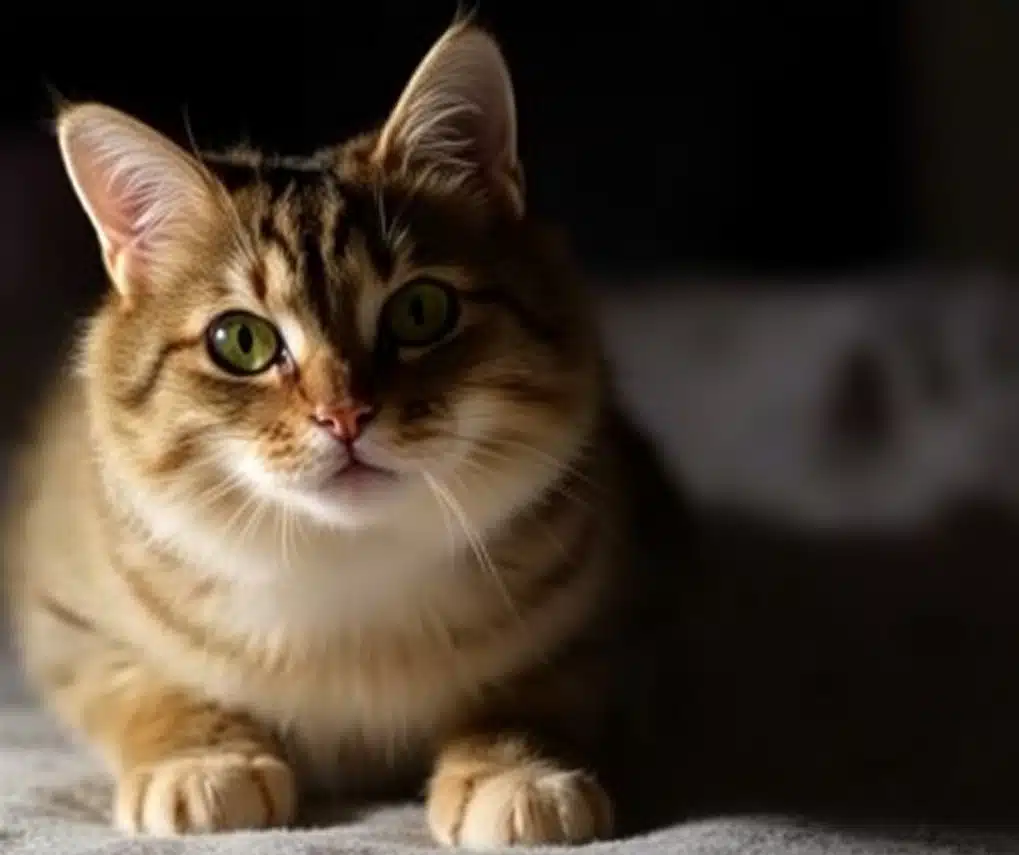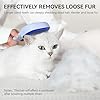If you’ve ever noticed your cat suddenly become hyper at night, you’re not alone. Cats are known for their nocturnal behavior, often springing into action when the house has quieted down and the lights go out. But what causes this shift from calm to chaos? Is it a sign of something to be concerned about, or just another quirky aspect of feline behavior?
In this post, we’ll explore Why Does Your Cat Suddenly Become Hyper at Night? And reasons behind your cat’s nighttime energy bursts, delve into their natural instincts, and provide tips for managing those late-night zoomies.
1. Nocturnal Instincts: Cats Are Natural Hunters
Cats are crepuscular, meaning they are most active during dawn and dusk. This behavior is inherited from their wild ancestors, who would hunt during these times. Even though your domestic cat might be fed and safe indoors, their instincts remain strong.
At night, when the environment is quieter, your cat’s natural hunting drive kicks in. Your furry friend may be “hunting” imaginary prey, pouncing on shadows, or chasing after moving objects like dust particles or toys.
Key Insights:
- Hunting instinct: Cats’ hyperactive behavior at night is rooted in their hunting nature.
- Time of activity: Their energy peaks during the twilight hours, aligning with their crepuscular lifestyle.
2. Boredom and Lack of Stimulation
Another common reason your cat might get hyper at night is boredom. Cats need mental and physical stimulation to stay balanced, and if they haven’t had enough play or interaction during the day, they’ll likely turn to you for entertainment when the lights go out.
Solution: If your cat is consistently active at night, consider adding more play sessions during the day or early evening to tire them out. Interactive toys, such as laser pointers or feather wands, can engage them in physical exercise that mimics hunting behavior.
Key Insights:
- Boredom: A lack of stimulation can lead to pent-up energy that bursts out at night.
- Solution: Increase playtime during the day to help your cat wind down by bedtime.
3. Cats’ Sleep Cycle: A Delicate Balance of Rest and Activity
Just like humans, cats have sleep cycles. While they sleep for an average of 12-16 hours a day, their sleep is broken into shorter periods throughout the day and night. These cycles might explain why your cat seems to sleep all day and then suddenly becomes hyper in the evening.
This hyperactivity can occur when your cat has had a nap, feels rested, and is ready for their next burst of activity. In some cases, the body’s internal rhythm can cause them to wake up in the middle of the night, feeling energetic and ready to play.
Key Insights:
- Sleep patterns: Cats have short bursts of sleep throughout the day and night.
- Active cycles: They may be rested after a nap and ready for activity when you’re winding down.
4. Overstimulated or Overfed Before Bedtime
Sometimes, a sudden spike in energy can occur if your cat has been overstimulated or overfed before bedtime. While many cats seem to become calm after eating, some might experience an energy rush if they’ve been given a large meal or a lot of treats.
If your cat is zooming around after a late-night snack, it could be a sign that they’re feeling overstimulated or simply have more energy from food than they can burn off in a single go.
Key Insights:
- Overfeeding: Large meals or treats late in the evening can lead to bursts of energy.
- Stimulation: Overstimulating activities, such as intense play, can contribute to late-night hyperactivity.
5. Stress or Anxiety
While it’s more common for cats to be active for natural reasons, stress or anxiety can also lead to hyperactive behavior. If something has recently changed in your cat’s environment—such as a move, a new pet, or a change in routine—they may be reacting to this new stress by becoming more active at night.
Solution: Keep an eye on any major changes in your cat’s environment. Providing a safe, quiet space for your cat to retreat to during the night can help alleviate anxiety.
Key Insights:
- Stress: Changes in environment or routine can lead to heightened nighttime activity.
- Solution: Reduce stressors and provide a calm environment to help ease anxiety.
6. Age and Energy Levels: Kittens vs. Older Cats
Kittens are more likely to exhibit nighttime hyperactivity, as they have a lot of energy and need to burn it off. As your cat ages, they may become less active at night, but older cats can still experience bursts of energy if they’re in good health.
Key Insights:
- Kittens: Younger cats have higher energy levels and are more likely to display nighttime zoomies.
- Older cats: Aging cats may still become active at night, but their energy tends to decrease over time.
7. Medical Conditions
In some cases, hyperactivity could be linked to an underlying medical condition. Cats with hyperthyroidism, for example, may display sudden bursts of energy, especially at night. If your cat’s hyperactivity is accompanied by other symptoms like weight loss, increased hunger, or excessive thirst, a trip to the vet might be necessary.
Key Insights:
- Health concerns: Hyperthyroidism and other health issues can cause unusual hyperactivity.
- Consultation: If the behavior persists, consult a vet to rule out medical causes.
How to Manage Your Cat’s Nighttime Hyperactivity
While this behavior is natural, it can disrupt your sleep. Here are practical ways to help your cat (and you) get a peaceful night’s rest.
1. Increase Daytime Playtime
Engage your cat in interactive play sessions during the day to tire them out. Use toys like feather wands or laser pointers to mimic prey and satisfy their hunting instincts.
2. Create a Routine
Cats thrive on routine. Establish regular times for feeding, play, and sleep to help them adjust their energy levels.
3. Provide Enrichment
Offer activities that keep your cat entertained during the day:
- Puzzle feeders
- Scratching posts
- Window perches to observe outdoor activity
4. Schedule Evening Play Before Feeding
Simulate their natural hunting pattern: play vigorously with your cat in the evening, then feed them. A tired and full cat is more likely to settle down.
5. Adjust Feeding Times
A small meal before bed can keep your cat satisfied and less likely to wake you up for attention.
6. Set Boundaries
If your cat’s zoomies are relentless, consider keeping them out of the bedroom at night. Provide a cozy sleeping area elsewhere with soft bedding and their favorite toys.
7. Ignore Attention-Seeking Behavior
Reacting to your cat’s nighttime antics can reinforce the behavior. Instead, avoid engaging with them during these episodes to discourage repeat performances.
FAQs
Q: Is it normal for cats to be hyper at night?
Yes, it’s a common behavior rooted in their natural instincts. However, excessive or disruptive hyperactivity might require intervention.
Q: Will my cat grow out of this phase?
Kittens and young cats are more prone to nighttime zoomies, and the behavior often diminishes as they age. However, some cats maintain bursts of energy throughout their lives.
Q: How much playtime does my cat need?
Aim for at least 20-30 minutes of active play twice a day. Younger cats might require even more.
Final Thoughts
Your cat’s nighttime antics may be an expression of their natural instincts or a sign they need more engagement during the day. By providing adequate stimulation, maintaining a routine, and setting boundaries, you can help channel their energy into appropriate activities—and finally get a good night’s sleep.
Ready to try these tips? Start by introducing more play sessions during the day and observe how your cat’s behavior evolves!
Have you noticed your cat’s hyperactivity at night? What have you done to manage it? Share your tips or ask questions in the comments below!


